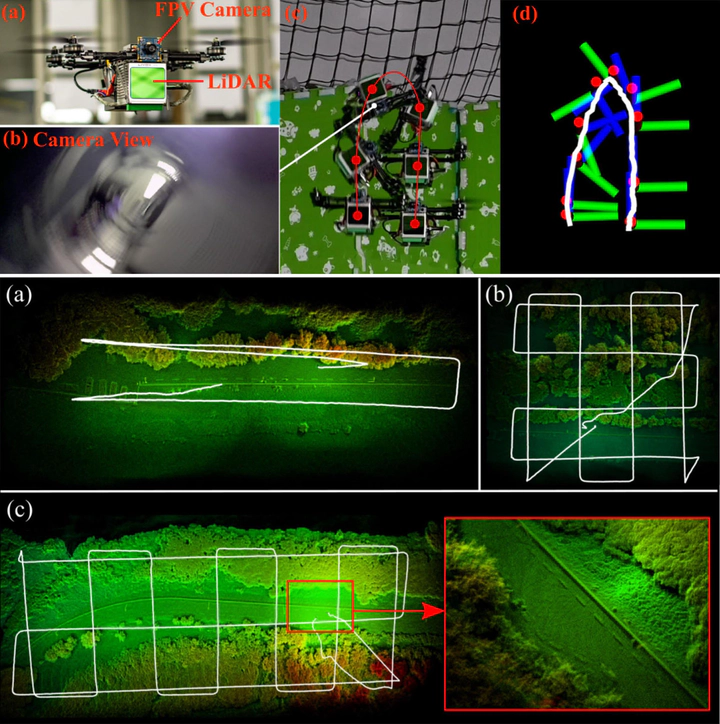FAST-LIO2: Fast Direct LiDAR-inertial Odometry

Abstract
This paper presents FAST-LIO2: a fast, robust, and versatile LiDAR-inertial odometry framework. Building on a highly efficient tightly-coupled iterated Kalman filter, FAST-LIO2 has two key novelties that allow fast, robust, and accurate LiDAR navigation (and mapping). The first one is directly registering raw points to the map (and subsequently update the map, i.e., mapping) without extracting features. This enables the exploitation of subtle features in the environment and hence increases the accuracy. The elimination of a hand-engineered feature extraction module also makes it naturally adaptable to emerging LiDARs of different scanning patterns; The second main novelty is maintaining a map by an incremental k-d tree data structure, ikd-Tree, that enables incremental updates (i.e., point insertion, delete) and dynamic re-balancing. Compared with existing dynamic data structures (octree, R$^*$-tree, nanoflann k-d tree), ikd-Tree achieves superior overall performance while naturally supports downsampling on the tree. We conduct an exhaustive benchmark comparison in 19 sequences from a variety of open LiDAR datasets. FAST-LIO2 achieves consistently higher accuracy at a much lower computation load than other state-of-the-art LiDAR-inertial navigation systems. Various real-world experiments on solid-state LiDARs with small FoV are also conducted. Overall, FAST-LIO2 is computationally-efficient (e.g., up to 100 $Hz$ odometry and mapping in large outdoor environments), robust (e.g., reliable pose estimation in cluttered indoor environments with rotation up to 1000 $deg/s$), versatile (i.e., applicable to both multi-line spinning and solid-state LiDARs, UAV and handheld platforms, and Intel and ARM-based processors), while still achieving higher accuracy than existing methods. Our implementation of the system FAST-LIO2, and the data structure ikd-Tree are both open-sourced on Github.
FAST-LIO
FAST-LIO (Fast LiDAR-Inertial Odometry) is a computationally efficient and robust LiDAR-inertial odometry package. It fuses LiDAR feature points with IMU data using a tightly-coupled iterated extended Kalman filter to allow robust navigation in fast-motion, noisy or cluttered environments where degeneration occurs. Our package address many key issues:
- Fast iterated Kalman filter for odometry optimization;
- Automaticaly initialized at most steady environments;
- Parallel KD-Tree Search to decrease the computation;
FAST-LIO 2.0 (2021-07-05 Update)


Related video: FAST-LIO2, FAST-LIO1
FAST-LIO 2.0 Features:
- Incremental mapping using ikd-Tree, achieve faster speed and over 100Hz LiDAR rate.
- Direct odometry (scan to map) on Raw LiDAR points (feature extraction can be disabled), achieving better accuracy.
- Since no requirements for feature extraction, FAST-LIO2 can support many types of LiDAR including spinning (Velodyne, Ouster) and solid-state (Livox Avia, Horizon, MID-70) LiDARs, and can be easily extended to support more LiDARs.
- Support external IMU.
- Support ARM-based platforms including Khadas VIM3, Nivida TX2, Raspberry Pi 4B(8G RAM).